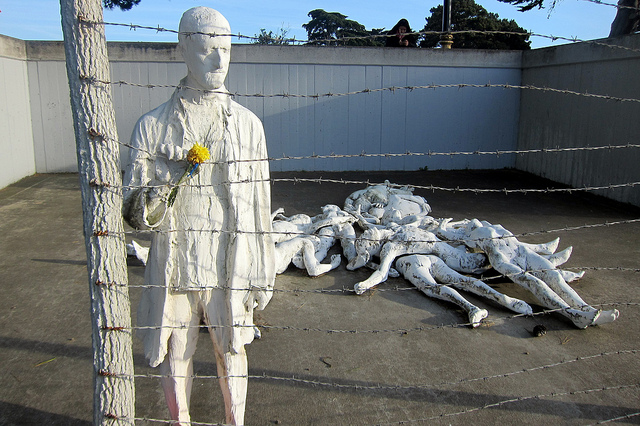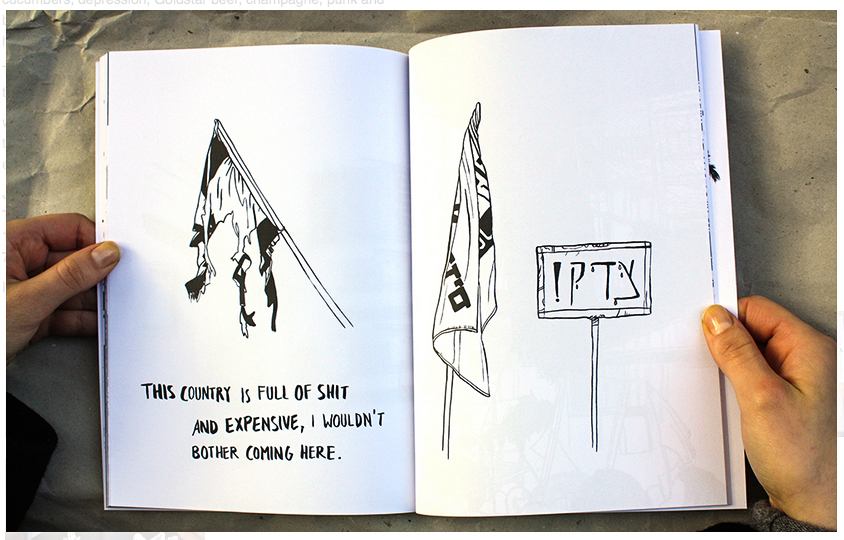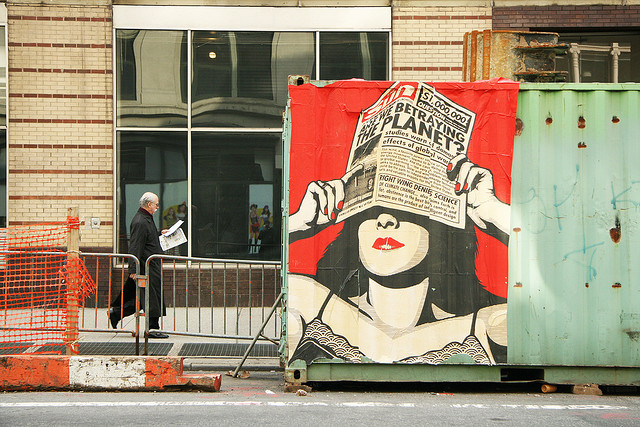Last May, I posted piece on the publication of the Schwarze Hefte, the heretofore unpublished notebooks kept by the prominent German philosopher Martin Heidegger. This event was getting a lot of press at the time, much more so than the emergence of unpublished works by a thinker few people have read and even fewer understand would usually do. (More…)
Books
More than just a graphic novel, This is Not Uganda is like peeking over the shoulder of the artist, the Berlin-based Tine Fetz, and seeing everything she sees. The book, released late last year by German publisher Ja Ja Verlag, is a chronicle of the time that Fetz spent studying and traveling in Israel. (More…)
At a fundamental level, there is something very attractive about the writings of Murray Bookchin. The work of this often prickly autodidact, who died in 2006, evinces an enduring to commitment to something that might (in the best sense of the word) be termed “humanism.” (More…)
Between 1976 and 1979, the British punk scene produced some very good albums (Never Mind the Bollocks; London Calling; Damned, Damned, Damned) and a couple of real brilliancies (The Pop Group’s Y, Gang of Four’s Entertainment.) But for sheer transgression, there is nothing to top Cut, the first album by The Slits. (More…)
“No European country has been more interested than France in the nature of memory and history, how it is understood, recorded, perceived, written and transmitted.” So writes Caroline Morehead in her new book, Village of Secrets: Defying the Nazis in Vichy France, and with some justice. (More…)
Few issues strike so close to home as human-driven climate change. Although one form or another of this explanation has been acknowledged by the vast majority of scientists, the general public has proved less ready to accept that this is the case. A recent Pew study revealed that 67% of Americans thought that there was “solid evidence that the Earth is warming,” with only 44% conceding that human beings are causing it. (More…)
Few pieces of journalism have aroused the ire than Hannah Arendt’s Eichmann in Jerusalem did when it was published in 1963. Arendt, who covered the trial for The New Yorker, seemed to have her own agenda. At times her tone bordered on flippancy, particularly when she accused the Judenräte, the councils that ran the ghettoes of Poland and Russia, of collaboration. (More…)
There’s something of a cottage industry in the US, devoted to tying contemporary politics to their intellectual forebears. In some cases, it’s a matter of pure character assassination, as in the assertions from the far right that Barack Obama is some sort of socialist. From the leftward side of the spectrum come claims that this or that politician is a devotee of the thought of that great seducer of the adolescent male mind, Ayn Rand. (More…)
European intellectuals can be divided between those who embrace history, and those fleeing from it. Marx and his intellectual progeny (up to Louis Althusser) represent the first sort. Men make their own history, as Marx once averred, but they do not do so under conditions of their own choosing. For structuralists and post-structuralists, by contrast, the role of history is, at best, secondary for understanding human life. (More…)
Two months ago, I set up an email alert for “UK Ministry of Defense.” Just to keep an eye on what my old chums are up to. I was expecting to have blogs, articles and reports of military activities – drone strikes, deployments, the usual catalog of daily military fuck-ups and the like – appearing in my inbox every day. (More…)
This is a peculiar moment in American culture. Slavery doesn’t trouble the psyche of this country in normal times. Although it was a key element on which much of the wealth of the United States was once based, the history of slavery is typically viewed as the prehistory of the Emancipation Proclamation. But a spate of recent publications has pushed the issue to a new level of prominence. (More…)











